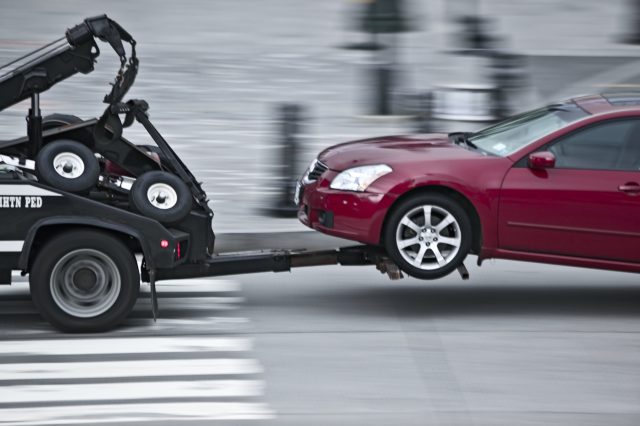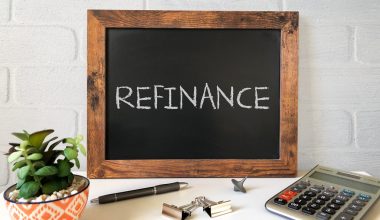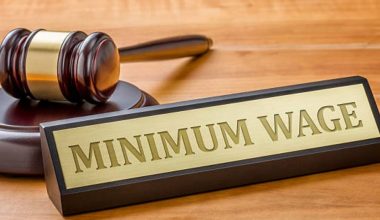If you’ve missed a car payment, then another, and another, you may be facing the possibility of having your car repossessed. Vehicle lenders have specific rights that terminate only when your loan obligation is paid off. These rights are outlined in the contract you signed when you drove the car off the lot. And one of these rights is the right to “repossess” the car if you fail to make timely payments. However, there is a legal procedure for repossessing a vehicle. If you fail to make your car payments or otherwise default on your loan, your lender may repossess your vehicle. Continue reading to learn more about car repossessions, how to avoid them, and what your alternatives are if your vehicle is repossessed.
What is a Car Repossession?
A car repossession occurs when a car loan is past due. In other words, if you don’t make your car payments on time (what the bankers refer to as “keeping your loan current”), the bank can repossess your vehicle. To accomplish this, the bank contracts with a local repossession company, which dispatches a tow truck driver to transport your car to a repo lot.
What Is the Process of Car Repossession?
If you are in default, most states allow car lenders to confiscate your vehicle without prior notice. They cannot, however, violate the peace while doing so. Breaching the peace usually entails using or threatening to use physical force against you in order to reclaim the car. However, it may also just include repossessing the car from your locked garage. If your lender violates the law, you may be entitled to damages or use it to defend against a deficiency case (described further below).
What Will the Lender Do After Taking Possession of Your Vehicle?
To settle your loan obligation, the lender may keep or sell the car. Each state has its own set of rules for sale procedures and notification requirements. You do, however, usually have the right to know when and where the sale will take place. Your lender must also sell the car in a commercially fair manner. This generally indicates that the lender must adhere to regular sales standards but is not compelled to acquire the maximum feasible price. If the sale was not commercially reasonable, you may have a claim for damages or a defense against a shortfall.
Car Repossession Types
Car repossession is classified into two types: voluntary and involuntary. Both are similar in that the lender repossesses your car because you are unable to pay and then sells or auctions it, with you responsible for the sum remaining after the sale (known as a deficiency balance).
Involuntary car repossession occurs when a lender seizes your automobile because you have fallen behind on payments. You probably won’t know when the repo man will show up and grab your car. Both the lender and the repossession business will charge you fees.
Voluntary car repossession means you have informed your lender that you are unable to pay and have agreed to return the vehicle. One advantage of voluntary car repossession is that you can plan ahead of time for when you will give up the car and not be caught off guard. You will also pay less in expenses, such as the impound lot fee and other expenditures associated with an involuntary repossession.
Why are Car Repossessed?
It’s simple: cars are repossessed when people fail to make payments on their car loans.
As previously said, when you finance a car, it is technically not yours. If you do not pay, the lender may repossess the property.
In some places, having the wrong car insurance might result in a repossession. It’s all written down in the loan agreement, which you probably didn’t read all the way through.
True, the primary cause of car repossessions is late payments. But there’s something more to this. Around 2 million cars will be repossessed in 2022, up from 1.7 million in 2019.1 What’s behind the rise in repossessions?
According to some auto loan experts, once the pandemic subsided and things returned to normal, people went crazy buying vehicles almost as much as they did residences. With the extra money from government handouts and rent delays caused by COVID, people bought more cars than they could afford—and car dealers and banks were delighted to oblige.
People discovered they couldn’t make those monthly $700 new-car payments when the government gravy train ceased and lenders reintroduced rent and other payments. It’s no surprise that delinquent car loans have increased, especially when you consider price increases in both new and used cars due to supply chain issues, widespread company layoffs done in anticipation of a recession, and skyrocketing costs of everything else due to inflation (including gas).
Car loan defaults are a classic example of people making poor financial decisions and living beyond their means. Everyone wants the latest and greatest gadget, and they want it now—and they’re willing to go into debt to get it. That is why debt is never a good thing and should be avoided at all costs.
Steps to Recover From a Car Repossession
When your car is repossessed, you may have no idea why it happened or how you’ll get to work the next day. However, you can recover by taking steps to meet your car needs and safeguard your credit from additional harm.
Here are five stages to recovering from a repossession:
- Inquire as to why your car was repossessed.
- Recognize your legal options.
- Determine whether you can recover your repossessed car.
- If the car has been sold, inquire as to whether you still owe money.
- Work on your credit score.
#1. Inquire as to why your car was repossessed.
If you’ve gone behind on your car payments, you may know why your vehicle was repossessed. Sometimes the reason isn’t so clear. In some places, failing to obtain the insurance specified in a loan or lease contract can be considered a default, and your car may be repossessed as a result. Before leaping to conclusions, contact your lender to clarify how to proceed.
#2. Determine whether you may reclaim your repossessed car.
Often, a bank or repossession business will let you get your car back if you pay off the debt in full, including any repossession fees before it’s auctioned off. You may be able to reinstate the loan and work out a new payment arrangement. In certain cases, the repossession may not be deleted from your credit record, but your new payments will be reflected if you reach an agreement with your lender (but not if you buy the car back at auction).
Before you get your car back, consider the following:
- Would you be able to afford insurance, maintenance, and petrol if you got your car back: Neglecting necessary repairs or being involved in an accident while uninsured may put you in an even worse financial predicament. You couldn’t get from point A to point B without gas. If you can’t afford these costs, reclaiming your car may not be the most cost-effective option.
- Do you have easy access to public transit or a carpool? Taking the bus or another mode of transportation to work may be a better option than restarting your loan or paying your amount and repossession charges in full.
- Do you intend to file for bankruptcy? If you are far behind on all of your bills and have no way of catching up, you may be considering bankruptcy. If you file before the bank or repo agency sells your car, there’s a strong chance you’ll be able to keep it and work out a payment plan. Based on the sort of bankruptcy you’re filing, consult with your bankruptcy attorney to see if this is possible.
#3. Understand your legal rights
Even if your car is towed, you still have some rights:
- The lender or repossession agency can seize the car but not the contents: For example, if you leave your laptop in the car, the lender cannot keep or sell it. In some places, the bank or repossession agency is obligated to provide you with a list of goods inside the car as well as instructions on how to reclaim them. If that is not the case, you may need to inquire. In general, this does not apply to any car extras you may have fitted, such as new rims or a beefed-up audio system.
- Your property should not be harmed during the procedure: A repo agency, for example, cannot smash down your garage door to get your car if it is locked inside. Consider calling a consumer lawyer if you believe your rights have been abused.
#4. If the car has been sold, inquire as to whether you still owe money:
When a bank or repossession agency repossess your car and sells it at auction, you may believe you owe nothing more on it. This isn’t always the case. Assume a bank issued you a $10,000 car loan and you defaulted, leaving you with a $9,000 debt. Even if the repossessed car sold at auction for $7,000, you would still owe $2,000 on it, plus repossession costs in some situations. This is known as a deficient balance.
Deficiency balances are typical, especially if you have a new car loan. Simply driving a new car off the lot can result in a 10% loss in value. Nonetheless, the lender or repossession business is still responsible for conducting the transaction in a “commercially reasonable manner.” If the repossessed car is sold for significantly less than its fair market value, you may be able to challenge the large deficiency sum in court.
If you completely disregard this deficit balance, the account may be referred to collections. So, if the amount is within the statute of limitations, the lender can also sue you for this balance.
Accounts in collections can appear on your credit report for up to seven years, so if you have the funds, it’s usually a good idea to pay off the balance to limit the damage to your credit.
#5. Work on your credit score.
A repossession can stay on your credit report for up to seven years, therefore waiting is a key part of rebuilding your credit thereafter. However, you can take a proactive approach to rebuilding your credit by paying your obligations on time and striving to pay off additional debt. In this manner, when your negative history is removed from the record, your credit score will be considerably higher, and you will be in a better position.
How to Avoid Car Repossession
If you’re behind on your car payments and repossession appears to be a possibility, there are steps you can take to avoid it—or at least mitigate the impact.
#1. Speak with Your Lender
The most crucial thing you can do is tell your lender everything. Get ahead of the situation by notifying your lender as soon as you suspect you will have difficulty paying your payments. Do not wait until your debt has gone into default.
Depending on how sensible the bank you’re dealing with is, it may work with you to avoid a default (after all, banks want money). It may reduce or suspend your monthly payment for a brief period of time while you get your finances in line. However, lenders are not compelled to assist you, so go in with realistic expectations.
#2. Do Not Perform a Voluntary Car Repossession
A voluntary repossession occurs when you know you won’t be able to make the payments and simply give up the car and notify the bank so they can come and take it. It appears to be a simple fix, doesn’t it?
Wrong! Never, ever intentionally surrender your car to repossession. If you do, you will lose all control over the issue and would be completely at the mercy of the lender. You can be sure the lender will take your car, sell it, and then sue you for the deficiency balance plus repo fees. That’s not good.
If you can’t make your payments and repossession appears imminent, it’s wiser to sell the car yourself and receive the best price you can (which, given the pricing of used cars these days, may surprise you). If the sale pays the outstanding loan sum, you’re out of the woods. So, if it doesn’t, you might ask another lender to lend you the difference between what you sold it for and what you owe. That way, the bothersome car loan is paid off, and you’re left with only a small amount of debt to cope with.
Paying out that lesser loan is preferable to paying the shortfall sum in a lawsuit (not to mention the fines and having a default on your credit report). And once you’ve paid off that car loan, you can go after that modest amount of debt with a gazelle’s zeal.
Car Repossession Financial Assistance
When it comes to car repossession, time is of the essence. If you are concerned that repossession will occur or is already underway, contact a nonprofit credit counselor right away. Once finished, repossession is a bell that cannot be tolled. You will lose a valuable item, which will linger on your credit history for seven years.
Nonprofit credit counselors are legally compelled to act in your best interests. Credit counseling is also provided at no cost. Counselors will analyze your finances, including income and expenses, work with you to create a budget, and discuss financial aid possibilities with you. They will discuss the benefits and drawbacks of debt settlement, debt consolidation, debt management plans, and bankruptcy. You’ll then have the information you need to select which financial assistance options can help you prevent car repossession or regain your credit and money.
- HOW LONG DOES A REPO STAY ON YOUR CREDIT
- HOW TO GET A CAR LOAN: What It Is and What You Should Know
- BEST WAY TO BUY A USED CAR RIGHT NOW (Updated!)
- BEST WAY TO BUY A CAR Now!! 9 Practical Cost-Effective Steps in 2023
- HOW TO FILE BANKRUPTCY: Who Qualifies, What You Need to Know & Guide






